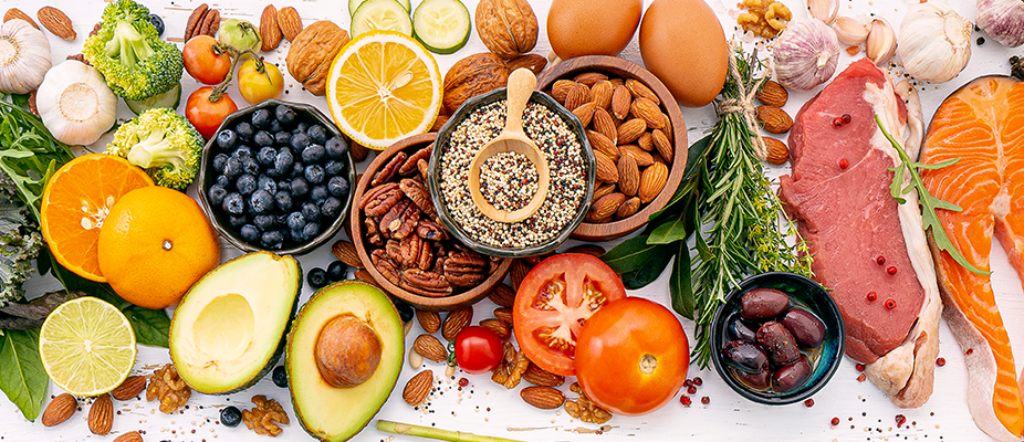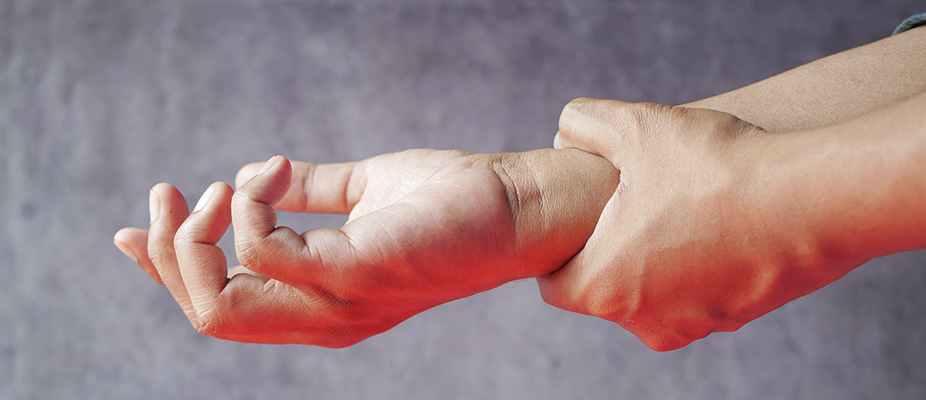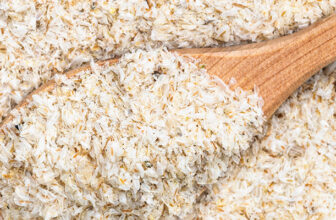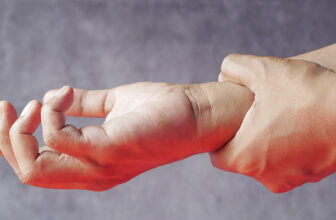
Introduction
Bloating is a common digestive problem that can cause mild to severe discomfort. It’s often the result of foods we eat, but sometimes it’s caused by an underlying medical condition. As you read this article, keep in mind that bloating is usually harmless and temporary. If your bloating persists or is accompanied by other symptoms such as diarrhea, constipation or weight loss then you should see your doctor for an evaluation.
What is bloating?
Bloating is the swelling of your abdomen. It can happen after a meal, and it’s common for bloating to be accompanied by discomfort or pain. The swelling might also make you feel like your pants fit tighter than they did before you ate. Bloating can be caused by gas or fluid in your intestines, as well as constipation.
If you experience bloating after eating a specific food, that means there’s something about that particular item that doesn’t agree with you—and it’s best to avoid it if possible! However, there are ways to reduce gas and bloating without giving up foods entirely:
Bloating symptoms
Bloating is a feeling of fullness or swelling in the abdomen. It can cause pain, discomfort and difficulty breathing. Bloating is caused by gas, fluid or both. You may experience bloating after eating certain foods that cause a lot of gas or if you eat too much food at one time.
When you eat food, it passes through your digestive tract to be digested and absorbed into your body as nutrients. This process takes place in three stages:
• First pass – The food goes from your mouth to your stomach through a tube called the esophagus (the “food pipe”).
• Second pass – The stomach produces acids that break down the food into smaller pieces so that it can be digested better in small intestine. The pancreas also produces enzymes to help digest protein and fat (macronutrients). Carbohydrates are broken down into simple sugars such as glucose before they reach the small intestine so they don’t need as much help getting absorbed into our bodies.(In other words, there’s less work for these organs because carbohydrates are already converted.)
• Third pass – In the final stage of digestion, nutrients travel along blood vessels until they reach their destinations within our bodies where they’re stored until needed again later on down road trips with friends when we want more energy-boosting snacks like fries with sour cream & onion dip!
What causes bloating?
• Lactose intolerance: This is a condition that occurs when you’re unable to digest lactose, a sugar found in milk and other dairy products. When your body doesn’t have enough of the enzyme that breaks down lactose, it remains in your gut and causes bloating.
• Food allergies: A food allergy is an immune system response to eating certain foods. Food allergies cause symptoms such as itching, swelling of the skin or mucous membranes (like those inside the mouth), wheezing and shortness of breath, nausea or vomiting, diarrhea or constipation—all common causes of bloating after meals.
• Gastroesophageal reflux disease (GERD): GERD is also known as acid reflux. It occurs when stomach acid backs up into the esophagus due to poor muscle tone at its junction with the stomach—a condition called lower esophageal sphincter dysfunction (or LES-D). Symptoms include chest pain or burning sensation behind the breastbone; heartburn; acid taste in mouth after eating; burping from gastric gas produced by stomach contents coming back up into throat while lying down; regurgitation after lying down for long periods such as sleeping at night; hoarseness caused by frequent clearing throat because of regurgitation during sleep time; difficulty swallowing solid foods due to frequent regurgitation during meal times [and] weight loss despite adequate intake because most people are too embarrassed about their symptoms

1. Try Adding More Fiber to Your Diet
Fiber helps reduce bloating by speeding up the passage of food through the digestive tract, reducing the amount of time that food stays in your digestive system. The recommended daily intake of fiber is 25 grams for men and 21 grams for women, but most Americans only consume half that amount per day. For example, one apple has 4 grams of fiber; a medium sweet potato has 5 grams; 1/2 cup cooked lentils has 14 grams; and 1 slice whole wheat bread contains 3 grams.
2. Watch for Foods That Can Cause Gas
Watch for foods that can cause gas. Some of the most common culprits include:
• Beans and other legumes (lentils, peas)
• Broccoli, cauliflower, Brussels sprouts and cabbage
• Grapes and grapefruit juice—these may be more troublesome than oranges or lemons since they contain a chemical called furanocoumarin which blocks an enzyme needed to digest starch. Other foods containing this chemical include cranberries, celery root, figs and some apples.
• Onions/garlic – these can cause bloating because they make you produce excess stomach acid when you eat them. In addition to causing heartburn symptoms like feeling full after eating small amounts of food or having indigestion after a meal containing onions/garlic (indicating too much stomach acid production), they also cause gassiness by creating excess gas in your intestines due to an increase in methane-producing bacteria due to their action on HCL (hydrochloric acid). You may also notice that your burps smell like garlic when you have eaten it!
3. Eat Less Salt
Salt. We all need it to survive, but too much salt can be a recipe for bloating. Sodium is the key component of table salt and while it’s good for your body in moderation, it can cause some unpleasant side effects if you eat too much of it. Salt is also used as a preservative and flavor enhancer so many processed foods have high sodium content.
According to Harvard Health Publications, “Research shows that reducing sodium intake by 1 gram/day reduces blood pressure by about 2 points in people who have high blood pressure.” To reduce your sodium intake:
• Eat more fresh fruits and vegetables instead of canned or frozen varieties; choose fresh whenever possible
• Read labels carefully when shopping at the grocery store; look for low-sodium options such as
low-sodium soups or beans without added broth
• Avoid eating out at chain restaurants where food may be cooked with higher amounts of salt than what you’re used to
4. Don’t Chew Gum
Be aware that chewing gum can cause bloating. If you’re prone to bloating after meals, avoid popping a piece of gum in your mouth immediately after eating. The sugar content in sugar-free gum can contribute to indigestion, which often leads to bloating. Moreover, chewing gum stimulates saliva production in the mouth and stomach acid secretion by the pancreas—both of which are associated with increased gas production.
5. Avoid Carbonated Beverages
Carbonated drinks can also cause bloating. The carbonation can cause gas to form in your stomach, which makes it harder for your body to digest food. Avoid soda, sparkling water, and sparkling juice.
• Soda: This includes all soft drinks that contain sugar, including regular colas and fruit-flavored sodas.
• Sparkling water: This means any drink that comes from a machine with bubbles in it—even natural or flavored waters—and even if it doesn’t taste like soda!
• Sparkling juices: Fruit juices are fine overall because they have vitamins and minerals but watch out for those that have added carbonation!
6. Eat Whole Fruits and Vegetables Rather Than Juicing or Blending Them
Juicing and blending fruits and vegetables can get rid of the fiber that helps food move through your digestive system. This causes more gas, which can cause bloating.
Not to mention, fruit juices tend to be high in sugar and some people are sensitive to it. That’s why drinking fruit juice can make you gain weight—it causes your blood sugar levels to spike (yikes!). You may be able to avoid this by diluting the juice with water but then you’re losing all those nutrients from the fruit! Not cool.
If you still want those benefits from fruits and vegetables without juicing or blending them, try eating them instead! And don’t forget: Fiber is important for digestion so make sure you’re getting enough fiber each day by snacking on whole grains like oatmeal or brown rice as well as nuts, seeds, legumes like chickpeas or lentils, plus lots of fresh produce!
7. Watch for Food Intolerances or Allergies
• Food intolerance vs food allergy. There are two main categories of digestive problems: food
intolerances and food allergies. You may have a food intolerance if you experience symptoms after eating, such as bloating or gas; when you remove that food from your diet, your body heals itself. Food allergies are triggered by proteins in certain foods and can lead to anaphylaxis (a severe reaction affecting the whole body).
• How to test for them? If you suspect that a certain ingredient might be causing digestive issues for you, try removing it from your diet for two weeks—and then reintroduce it at different points throughout the day to see how your body reacts. Some common culprits include gluten (from wheat), lactose (in dairy products), and FODMAPs (fermentable oligosaccharides, disaccharides, monosaccharides and polyols). You can also seek out alternative therapies like acupuncture or talk with a nutritionist if milder symptoms persist despite eliminating certain foods from your diet or trying alternative methods.
• How do I know what’s causing my discomfort? The most common causes of bloating after meals include:
• The amount of fiber in what we eat—too much fiber can cause diarrhea whereas not enough can lead to constipation3
• Eating too quickly; rushing through our meals will likely make us feel uncomfortably full
afterwards
• Consuming greasy foods such as fries; these types of foods tend not only give us heartburn but also contribute towards making us retain water5
Bloating can be uncomfortable and embarrassing, but it’s usually caused by something you eat, not a serious medical problem.
Bloating is a common problem that can be uncomfortable and embarrassing. You may feel like you look several months pregnant, even though you haven’t eaten enough to gain weight.
Bloating is caused by eating too much or eating the wrong foods. As your food makes its way through your digestive system, it can cause you to feel bloated if there’s too much water in your digestive tract or if it takes longer than normal for the food to pass through.
It’s important to remember that bloating isn’t usually a sign of a serious medical problem like irritable bowel syndrome (IBS) or celiac disease (CD). If you’re worried about what might be causing your bloating, talk with your health care provider about getting tested for these conditions.
Conclusion
Hopefully, by now you have a better idea of what bloating is and how to prevent it. If you’re still having trouble with bloating after meals, or if the symptoms are getting worse over time, it might be time to see your doctor. If you’re concerned about something more serious than just bloating—such as abdominal pain or nausea—then don’t delay: go straight to an emergency room or call 911 immediately!








